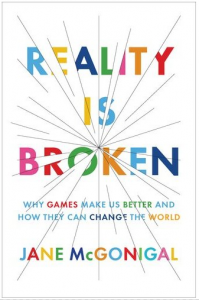
As part of research we are doing in GRAND we decided we need a lot more experience designing games. Garry and Patrick ran our 1st Game Design Game (Workshop) on Saturday. (The link takes you to pictures Vadim Bulitko took – thanks Vadim.)

Patrick and Garry developed a meta-game (a game about games) where each team had to pick a card or two from each of three piles (who, when/where, and why). The cards then formed the constraints within which we had to design a game. Later we had to pick two more cards which constrained what sort of game it would be and how we were to present it.
The team I was on picked Who=Non-human, Where=Is Poor, and Uses a Microphone. We came up with a game that was so good that we are now busy patenting it. Above all we had fun making costumes and props.



